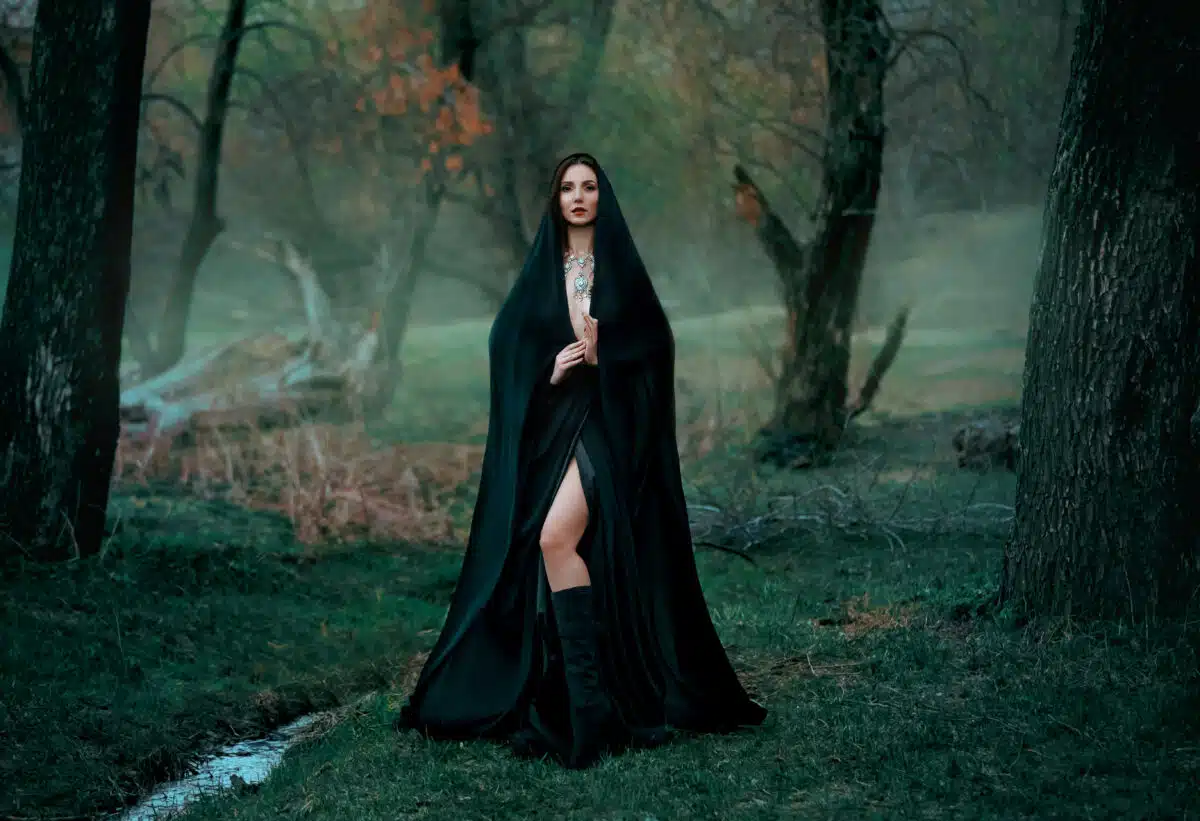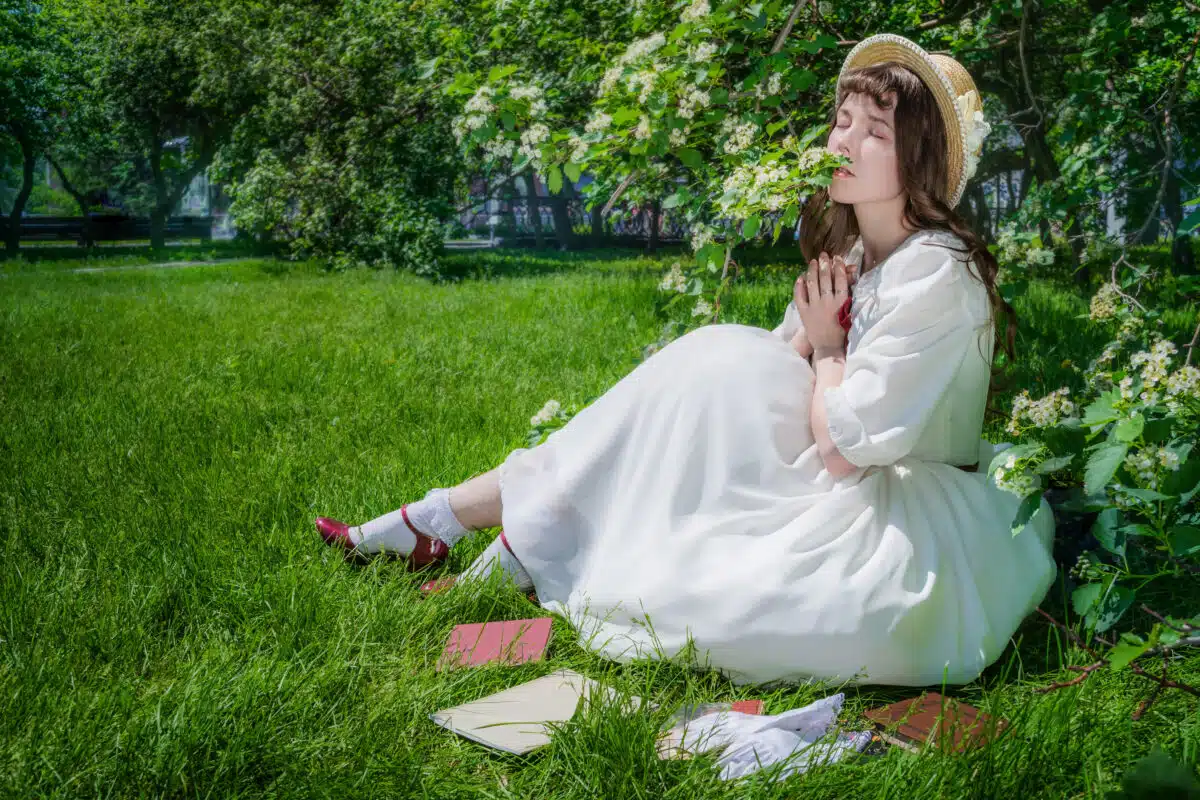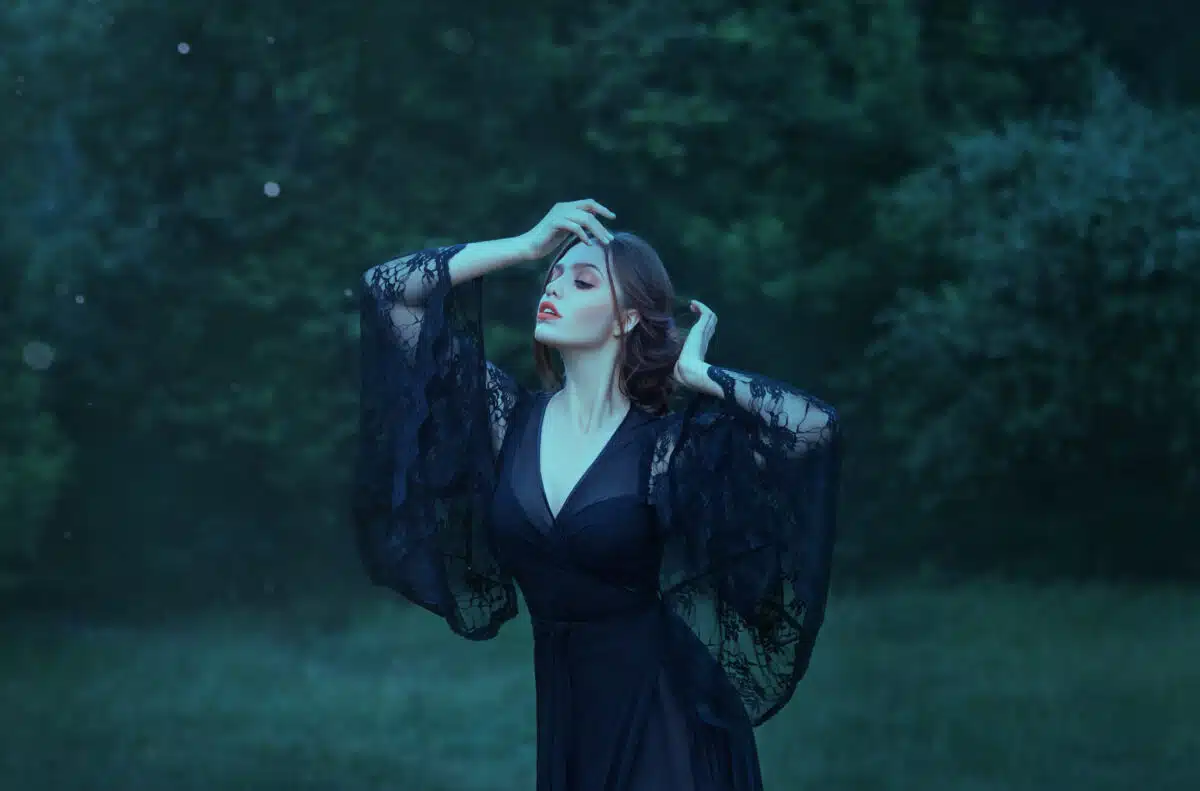Here are my favorite poems about money categorized:
- Short poems about money
- Poems about money and happiness
- Poems about money and power
- Poems about money that rhyme
- Poems about money and love
So if you want the best poems about money, then you’re in the right place.
Let’s get started!
- 103 Fearless Poems About Attitude
- 31 Exciting Poems About Character
- 35 Valiant Poems About Heroes
- 23 Compelling Poems About Individuality
- 47 Freeing Poems About Being Yourself
- 63 Unshackling Poems About Freedom
- 35 Captivating Poems About Self-Love

Empowering Poems About Money
Step into a captivating realm where the allure of wealth intertwines with the poetic artistry of words.
Immerse yourself in the tantalizing world of short poems about money, where riches and fortunes are distilled into mesmerizing verses that tickle your imagination.
Discover the intoxicating blend of money and love as you delve into poems that explore the complex dance between material wealth and matters of the heart.
This extraordinary collection invites you to indulge in the poetic extravagance of money, where every line is a tantalizing glimpse into the power and intrigue of financial dreams and desires.
Let’s jump right in!
My #1 Favorite Poem About Money

“Money” by William H. Davies
When I had money, money, O!
I knew no joy till I went poor;
For many a false man as a friend
Came knocking all day at my door.
Then felt I like a child that holds
A trumpet that he must not blow
Because a man is dead; I dared
Not speak to let this false world know.
Much have I thought of life, and seen
How poor men’s hearts are ever light;
And how their wives do hum like bees
About their work from morn till night.
So, when I hear these poor ones laugh,
And see the rich ones coldly frown—
Poor men, think I, need not go up
So much as rich men should come down.
When I had money, money, O!
My many friends proved all untrue;
But now I have no money, O!
My friends are real, though very few.
Short Poems About Money

“Epigram, On Winning A Young Lady’s Money At Cards” by John Carr Sir
How fairly Fortune all her gifts imparts;
We win your money, Ann, and you our hearts.
“They gave large Money to the Soldiers” by Richard Crashaw
The Soldier’s silence is’t with money bought?
Thy gift will tell a tale, though they say nought.
Whatever with a bribe thou fain wouldst hide,
Most shamefully thou spreadest far and wide.
“A Coin” by Carl Sandburg
Your western heads here cast on money,
You are the two that fade away together,
Partners in the mist.
Lunging buffalo shoulder,
Lean Indian face,
We who come after where you are gone
Salute your forms on the new nickel.
You are
To us:
The past.
Runners
On the prairie:
Good-by.

“Lines Written in Evelyn’s Book on Coins” by Alexander Pope
Tom Wood of Chiswick, deep divine,
To Painter Kent gave all this coin.
’T is the first coin, I ’m bold to say,
That ever churchman gave to lay.
“Money Gets The Mastery” by Robert Herrick
Fight thou with shafts of silver and o’ercome,
When no force else can get the masterdom.
“Gold Before Goodness” by Robert Herrick
How rich a man is all desire to know;
But none inquires if good he be or no.

“Epigram On Wood’s Brass Money” by Jonathan Swift
Carteret was welcomed to the shore
First with the brazen cannon’s roar;
To meet him next the soldier comes,
With brazen trumps and brazen drums;
Approaching near the town he hears
The brazen bells salute his ears:
But when Wood’s brass began to sound,
Guns, trumpets, drums, and bells, were drown’d.
“Upon Huncks. Epig” by Robert Herrick
Huncks has no money, he does swear or say,
About him, when the tavern’s shot’s to pay.
If he has none in ‘s pockets, trust me, Huncks
Has none at home in coffers, desks, or trunks.
“Epigram For Wall Street” by Edgar Allan Poe
I’ll tell you a plan for gaining wealth,
Better than banking, trade or leases,
Take a bank note and fold it up,
And then you will find your money in creases!
This wonderful plan, without danger or loss,
Keeps your cash in your hands, where nothing can trouble it;
And every time that you fold it across,
‘Tis as plain as the light of the day that you double it!

“To God: His Good Will” by Robert Herrick
Gold I have none, but I present my need,
O Thou, that crown’st the will, where wants the deed.
Where rams are wanting, or large bullocks’ thighs,
There a poor lamb’s a plenteous sacrifice.
Take then his vows, who, if he had it, would
Devote to Thee both incense, myrrh and gold
Upon an altar rear’d by him, and crown’d
Both with the ruby, pearl, and diamond.
“If Wealth Is Gone” by Johann Wolfgang von Goethe
If wealth is gone then something is gone!
Quick, make up thy mind,
And fresh wealth find.
If honour is gone then much is gone!
Seek glory to find,
And people then will alter their mind.
If courage is gone then all is gone!
‘Twere better that thou hadst never been born.
“The Coin” by Sara Teasdale
Into my heart’s treasury
I slipped a coin
That time cannot take
Nor a thief purloin,
Oh better than the minting
Of a gold-crowned king
Is the safe-kept memory
Of a lovely thing.

“Lyric For Legacies” by Robert Herrick
Gold I’ve none, for use or show,
Neither silver to bestow
At my death; but this much know;
That each lyric here shall be
Of my love a legacy,
Left to all posterity.
Gentle friends, then do but please
To accept such coins as these
As my last remembrances.
“Reverence To Riches” by Robert Herrick
Like to the income must be our expense;
Man’s fortune must be had in reverence.
“Upon Bunce. Epig.” by Robert Herrick
Money thou ow’st me; prethee fix a day
For payment promis’d, though thou never pay:
Let it be Dooms-day; nay, take longer scope;
Pay when th’art honest; let me have some hope.

“To Death” by Padraic Pearse
I have not gathered gold;
The fame that I won perished;
In love I found but sorrow,
That withered my life.
Of wealth or of glory
I shall leave nothing behind me
(I think it, O God, enough!)
But my name in the heart of a child.
“No Man Without Money” by Robert Herrick
No man such rare parts hath, that he can swim,
If favour or occasion help not him.
“Where’s The Use” by Robert Fuller Murray
Oh, where’s the use of having gifts that can’t be turned to money?
And where’s the use of singing, when there’s no one wants to hear?
It may be one or two will say your songs are sweet as honey,
But where’s the use of honey, when the loaf of bread is dear?

“Riches” by Sara Teasdale
I have no riches but my thoughts,
Yet these are wealth enough for me;
My thoughts of you are golden coins
Stamped in the mint of memory;
And I must spend them all in song,
For thoughts, as well as gold, must be
Left on the hither side of death
To gain their immortality.
“First Work, And Then Wages” by Robert Herrick
Preposterous is that order, when we run
To ask our wages ere our work be done.
“Upon Roots. Epig.” by Robert Herrick
Roots had no money; yet he went o’ the score,
For a wrought purse; can any tell wherefore?
Say, what should Roots do with a purse in print,
That had not gold nor silver to put in’t?

“Adversity” by Robert Herrick
Love is maintain’d by wealth; when all is spent,
Adversity then breeds the discontent.
“Money Makes The Mirth” by Robert Herrick
When all birds else do of their music fail,
Money’s the still-sweet-singing nightingale!
“Bad Wages For Good Service” by Robert Herrick
In this misfortune kings do most excel,
To hear the worst from men when they do well.

“The River Cuts A Channel” by Paul Cameron Brown
People with money but no fortune
or stomach for the life of an albatross,
watch him soar on self-made wings,
fetch the dingy redness
of morning’s first catch with
a long necked bottle
he calls the captain
“Wages” by Robert Herrick
After this life, the wages shall
Not shared alike be unto all.
“Kant And His Commentators” by Friedrich Schiller
See how a single rich man gives a living to numbers of beggars!
‘Tis when sovereigns build, carters are kept in employ.
Poems About Money and Happiness

“Rich And Rare Were The Gems She Wore” by Thomas Moore
Rich and rare were the gems she wore,
And a bright gold ring on her wand she bore;
But oh! her beauty was far beyond
Her sparkling gems, or snow-white wand.
“Lady! dost thou not fear to stray,
So lone and lovely through this bleak way?
Are Erin’s sons so good or so cold,
As not to be tempted by woman or gold?”
“Sir Knight! I feel not the least alarm,
No son of Erin will offer me harm: —
For though they love woman and golden store,
Sir Knight! they love honour and virtue more!”
On she went, and her maiden smile
In safety lighted her round the green isle;
And blest for ever is she who relied
Upon Erin’s honour and Erin’s pride.
“On Being Broke” by Edgar Albert Guest
Don’t mind being broke at all,
When I can say that what I had
Was spent for toys for kiddies small
And that the spending made ’em glad.
I don’t regret the money gone,
If happiness it left behind.
An empty purse I’ll look upon
Contented, if its record’s kind.
There’s no disgrace in being broke,
Unless it’s due to flying high;
Though poverty is not a joke,
The only thing that counts is ‘why?’
The dollars come to me and go;
To-day I’ve eight or ten to spend;
To-morrow I’ll be sailing low,
And have to lean upon a friend.
But if that little bunch of mine
Is richer by some toy or frill,
I’ll face the world and never whine
Because I lack a dollar bill.
I’m satisfied, if I can see
One smile that hadn’t bloomed before.
The only thing that counts with me
Is what I’ve spent my money for.
I might regret my sorry plight,
If selfishness brought it about;
If for the fun I had last night,
Some joy they’d have to go without.
But if I’ve swapped my bit of gold,
For laughter and a happier pack
Of youngsters in my little fold
I’ll never wish those dollars back.
If I have traded coin for things
They needed and have left them glad,
Then being broke no sorrow brings-
I’ve done my best with what I had.
“Richard Cory” by Edwin Arlington Robinson
Whenever Richard Cory went down town,
We people on the pavement looked at him:
He was a gentleman from sole to crown,
Clean favored and imperially slim.
And he was always quietly arrayed,
And he was always human when he talked,
But still he fluttered pulses when he said,
“Good-morning,” and he glittered when he walked.
And he was rich–yes, richer than a king–
And admirably schooled in every grace:
In fine, we thought that he was everything
To make us wish that we were in his place.
So on we worked, and waited for the light,
And went without the meat and cursed the bread;
And Richard Cory, one calm summer night,
Went home and put a bullet through his head.

“Up at a Villa—Down in the City” by Robert Browning
Had I but plenty of money, money enough and to spare,
The house for me, no doubt, were a house in the city-square;
Ah, such a life, such a life, as one leads at the window there!
Something to see, by Bacchus, something to hear, at least!
There, the whole day long, one’s life is a perfect feast;
While up at a villa one lives, I maintain it, no more than a beast.
Well now, look at our villa! stuck like the horn of a bull
Just on a mountain-edge as bare as the creature’s skull,
Save a mere shag of a bush with hardly a leaf to pull!
—I scratch my own, sometimes, to see if the hair’s turned wool.
But the city, oh the city—the square with the houses! Why?
They are stone-faced, white as a curd, there’s something to take the eye!
Houses in four straight lines, not a single front awry;
You watch who crosses and gossips, who saunters, who hurries by;
Green blinds, as a matter of course, to draw when the sun gets high;
And the shops with fanciful signs which are painted properly.
What of a villa? Though winter be over in March by rights,
‘Tis May perhaps ere the snow shall have withered well off the heights:
You’ve the brown ploughed land before, where the oxen steam and wheeze,
And the hills over-smoked behind by the faint gray olive-trees.
Is it better in May, I ask you? You’ve summer all at once;
In a day he leaps complete with a few strong April suns.
‘Mid the sharp short emerald wheat, scarce risen three fingers well,
The wild tulip, at end of its tube, blows out its great red bell
Like a thin clear bubble of blood, for the children to pick and sell.
Is it ever hot in the square? There’s a fountain to spout and splash!
In the shade it sings and springs: in the shine such foambows flash
On the horses with curling fish-tails, that prance and paddle and pash
Round the lady atop in her conch—fifty gazers do not abash,
Though all that she wears is some weeds round her waist in a sort of sash.
All the year long at the villa, nothing to see though you linger,
Except yon cypress that points like death’s lean lifted forefinger.
Some think fireflies pretty, when they mix in the corn and mingle,
Or thrid the stinking hemp till the stalks of it seem a-tingle.
Late August or early September, the stunning cicala is shrill,
And the bees keep their tiresome whine round the resinous firs on the hill.
Enough of the seasons,—I spare you the months of the fever and chill.
Ere you open your eyes in the city, the blessed church-bells begin:
No sooner the bells leave off than the diligence rattles in:
You get the pick of the news, and it costs you never a pin.
By and by there’s the travelling doctor gives pills, lets blood, draws teeth;
Or the Pulcinello-trumpet breaks up the market beneath.
At the post-office such a scene-picture—the new play, piping hot!
And a notice how, only this morning, three liberal thieves were shot.
Above it, behold the Archbishop’s most fatherly of rebukes,
And beneath, with his crown and his lion, some little new law of the Duke’s!
Or a sonnet with flowery marge, to the Reverend Don So-and so,
Who is Dante, Boccaccio, Petrarca, Saint Jerome and Cicero,
“And moreover,” (the sonnet goes rhyming,) “the skirts of Saint Paul has reached,
Having preached us those six Lent-lectures more unctuous than ever he preached.”
Noon strikes,—here sweeps the procession! our Lady borne smiling and smart
With a pink gauze gown all spangles, and seven swords stuck in her heart!
Bang-whang-whang goes the drum, tootle-te-tootle the fife.
No keeping one’s haunches still: it’s the greatest pleasure in life.
But bless you, it’s dear—it’s dear! fowls, wine, at double the rate.
They have clapped a new tax upon salt, and what oil pays passing the gate
It’s a horror to think of. And so, the villa for me, not the city!
Beggars can scarcely be choosers: but still—ah, the pity, the pity!
Look, two and two go the priests, then the monks with cowls and sandals,
And the penitents dressed in white shirts a-holding the yellow candles;
One, he carries a flag up straight, and another a cross with handles.
And the Duke’s guard brings up the rear, for the better prevention of scandals:
Bang-whang-whang goes the drum, tootle-te-tootle the fife;
Oh, a day in the city-square, there is no such pleasure in life!
“The Old Survey” by Banjo Paterson
Our money’s all spent, to the deuce went it!
The landlord, he looks glum,
On the tap-room wall, in a very bad scrawl,
He has chalked to us a sum.
But a glass we’ll take, ere the grey dawn break,
And then saddle up and away–
Theodolite-tum, theodolite-ti, theodolite-too-ral-ay.
With a measured beat fall our horses’ feet,
Galloping side by side;
When the money’s done, and we’ve had our fun,
We all are bound to ride.
O’er the far-off plain we’ll drag the chain,
And mark the settler’s way–
Theodolite-tum, theodolite-ti, theodolite-too-ral-ay.
We’ll range from the creeks to the mountain peaks,
And traverse far below;
Where foot never trod, we’ll mark with a rod
The limits of endless snow;
Each lofty crag we’ll plant with a flag,
To flash in the sun’s bright ray–
Theodolite-tum, theodolite-ti, theodolite-too-ral-ay.
Till with cash hard-earned once more returned,
At “The Beaver” bars we’ll shout;
And the very bad scrawl that’s against the wall
Ourselves shall see wiped out.
Such were the ways in the good old days!–
The days of the old survey!
Theodolite-tum, theodolite-ti, theodolite-too-ral-ay.
“The Roads of Happiness” by Edgar A. Guest
The roads of happiness are not
The selfish roads of pleasure seeking,
Where cheeks are flushed with haste and hot
And none has time for kindly speaking.
But they’re the roads where lovers stray,
Where wives and husbands walk together
And children romp along the way
Whenever it is pleasant weather.
The roads of happiness are trod
By simple folks and tender-hearted,
By gentle folks that worship God
And want to live their days unparted.
There kindly people stop and talk,
Regardless of the chase for money,
There, arm in arm, the grown-ups walk
And every eye you see is sunny.
The roads of happiness are lined,
Not with the friends of royal splendor,
But with the loyal friends and kind
That do the gentle deeds and tender.
There fame has never brought unrest
Nor glory set men’s hearts to aching;
There unabandoned is life’s best
For selfish love and money making.
The roads of happiness are those
That do not lead to pomp and glory
But wind among the joys and woes
That make the humble toiler’s story.
The roads that oft we used to tread
In early days when first we mated,
When hearts were light and cheeks were red,
And days were not with burdens freighted.
Poems About Money and Power

“Sailors for My Money” by Martin Parker
Countrymen of England, who live at home with ease,
And little think what dangers are incident o’ th’ Seas:
Give ear unto the Sailor who unto you will show
His case, his case: Howe’er the wind doth blow.
He that is a Sailor must have a valiant heart,
For, when he is upon the sea, he is not like to start;
But must with noble courage, all dangers undergo:
Resolve, resolve: Howe’er the wind doth blow.
Our calling is laborious and subject to much care,
But we must still contented be, with what falls to our share.
We must not be faint-hearted, come tempest, rain or snow,
Nor shrink, nor shrink: Howe’er the wind doth blow.
Sometimes on Neptune’s bosom our ship is tost with waves,
And every minute we expect the sea must be our graves.
Sometimes on high she mounteth, then falls again as low:
With waves, with waves: When stormy winds do blow.
Then with unfained prayers, as Christian duty binds,
We turn unto the Lord of hosts, with all our hearts and minds;
To Him we fly for succour, for He, we surely know,
Can save, can save: Howe’er the wind doth blow.
Then He who breaks the rage, the rough and blustrous seas,
When His disciples were afraid, will straight the storm appease,
And give us cause to thank, on bended knees full low:
Who saves, who saves: Howe’er the wind doth blow.
Our enemies approaching, when we on sea espy,
We must resolve incontinent to fight, although we die,
With noble resolution we must oppose our foe,
In fight, in fight: Howe’er the wind doth blow.
And when by God’s assistance, our foes are put to th’ foile,
To animate our courages, we all have share o’ the spoile.
Our foes into the ocean we back to back do throw,
To sink, or swim, Howe’er the wind doth blow.
“The Washington Coin” by William McCarty
Can wits or serious sages say
Why Congress should refuse that head
A place upon their coin this day,
O’er which the world hath laurels spread?
Yes, Liberty, celestial maid,
By whom its right to crown was given,
The eager hands of Congress stay’d;
And claim’d that place as sent by Heaven.
“Shall WASHINGTON, my favourite child,
Be rank’d ’mongst haughty kings?” she cried;
“Of manners pure, affections mild,
For wild ambition be decried?
“Or shall each vile successor share
That honour which you think his due?
Or, granting this were right, who dare
This path of monarchies pursue?
“Because a sycophantic race
Worshipp’d, in every form, their kings;
And on their coins, to their disgrace,
Placed them, if wise or silly things:
“Because (for this you have been told)
Their lands, their lives, were not their own,
Of course their silver and their gold
Were his who sat upon their throne—
“Shall sons of this enlightened land,
Neglecting thus their sacred right,
As if not yet they understand
Why Heaven has favoured them in fight,
“Thus madly mimic thoughtless tools?
Let busts, let monuments arise
To Washington! not like those fools
On coins he’ll stay; I’ll bear him ’bove the skies.
“My image place upon each piece;
His, and his virtues, in your breast:
There you’ll excel e’en Rome and Greece;
By all my favourite sons caress’d.”
“The Burier And His Comrade” by Jean de La Fontaine
A close-fist had his money hoarded
Beyond the room his till afforded.
His avarice aye growing ranker,
(Whereby his mind of course grew blanker,)
He was perplex’d to choose a banker;
For banker he must have, he thought,
Or all his heap would come to nought.
‘I fear,’ said he, ‘if kept at home,
And other robbers should not come,
It might be equal cause of grief
That I had proved myself the thief.’
The thief! Is to enjoy one’s pelf
To rob or steal it from one’s self?
My friend, could but my pity reach you,
This lesson I would gladly teach you,
That wealth is weal no longer than
Diffuse and part with it you can:
Without that power, it is a woe.
Would you for age keep back its flow?
Age buried ‘neath its joyless snow?
With pains of getting, care of got
Consumes the value, every jot,
Of gold that one can never spare.
To take the load of such a care,
Assistants were not very rare.
The earth was that which pleased him best.
Dismissing thought of all the rest,
He with his friend, his trustiest, –
A sort of shovel-secretary, –
Went forth his hoard to bury.
Safe done, a few days afterward,
The man must look beneath the sward –
When, what a mystery! behold
The mine exhausted of its gold!
Suspecting, with the best of cause,
His friend was privy to his loss,
He bade him, in a cautious mood,
To come as soon as well he could,
For still some other coins he had,
Which to the rest he wish’d to add.
Expecting thus to get the whole,
The friend put back the sum he stole,
Then came with all despatch.
The other proved an overmatch:
Resolved at length to save by spending,
His practice thus most wisely mending,
The total treasure home he carried –
No longer hoarded it or buried.
Chapfallen was the thief, when gone
He saw his prospects and his pawn.
From this it may be stated,
That knaves with ease are cheated.

“The Ghost of Continental Money” by William McCarty
Though I’m dead and forgotten,
Though my carcase is rotten,
And my honours are sleeping in dust,
Yet my visage, so hoary,
Now rises before you,
To warn you, my friend, of the worst.
I advise you to lie
Where you are, and to die—
O!—ne’er to remove any farther:
Should you come from the womb,
You would wish it a tomb—
You’d curse both the midwife and mother.
Why need I relate
That series of fate
Which plunged me in wo and disaster—
How I first was respected
And then was rejected,
And, last, dwindled down to a plaster.
The states, they united,
Their honour they plighted,
But all was a whim and a sham:
But before my escape, sir,
Not all I could scrape, sir,
Would buy the poor soldier a dram.
I have lived, to be sure,
A while, to secure
The rights of a much-injured nation:
But I got all my living
By a course of deceiving,
That has sunk me in utter damnation.
I’m dead and departed—
But quickly I started
To hear of your sudden conception:
Old Tenor and I
Did sit down and cry
When we thought of your future deception.
Enough we have done
Without you, my son,
To turn the whole state topsy-turvy:
Let our troubles, then, teach you,
We humbly beseech you,
To fly from a treatment so scurvy.
But your mother will say
She “will dress you up gay,
With garments all wrought from her spinning.”
You had better, I vags,
Live still in your rags—
In fragments of cotton and linen.
For your mother is weak:
She’s lame and she’s sick,
And quite in a helpless condition:
Not able, I’ve said it,
To keep up your credit,
Or save your poor soul from perdition.
She will try (but in vain)
Your faith to maintain
By a tender on suits and contentions;
But no one will sue;
What then will you do?
You surely will make feuds and dissensions.
How will you contrive
My fate to survive?
Your emblems are not worth a farthing:
The merchant will spite you,
The lawyer will slight you,
And priests will not care for your starving.
There’s a foe in disguise
That will pick out your eyes,
And all your fine garments bespatter:
He is hard—you are soft—
Such struggles too oft
Turn out to the loss of the latter.
You may strive and may tease,
But never will please—
You never will suit and content all:
So stay where you are:
Or, alas! you will share
The fortune of old Continental.
“The Rich Boy’s Christmas” by Ellis Parker Butler
And now behold this sulking boy,
His costly presents bring no joy;
Harsh tears of anger fill his eye
Tho’ he has all that wealth can buy.
What profits it that he employs
His many gifts to make a noise?
His playroom is so placed that he
Can cause his folks no agony.
Moral:
Mere worldly wealth does not possess
The power of giving happiness.
“Good-By Bill” by Ringgold Wilmer Lardner
Dollar Bill, that I’ve held so tight
Ever since payday, a week ago,
Shall I purchase with you tonight
A pair of seats at the vaudeville show?
(Hark! A voice from the easy chair:
“Look at his shoes! We must buy a pair.”)
Dollar Bill, from the wreckage saved,
Tell me, how shall I squander you?
Shall I be shined, shampooed and shaved,
Singed and trimmed ’round the edges, too?
(Hark! A voice from the easy chair:
“He hasn’t a romper that’s fit to wear.”)
Dollar Bill, that I cherished so,
Think of the cigarettes you’d buy,
Turkish ones, with a kick, you know;
Makin’s eventually tire a guy.
(Hark! A voice from the easy chair:
“Look at those stockings! Just one big tear!”)
Dollar Bill, it is time to part.
What do I care for a vaudeville show?
I’ll shave myself and look just as smart.
Makin’s aren’t so bad, you know.
Dollar Bill, we must say good-by;
There on the floor is the Reason Why.

“Carlovingian Dreams” by Carl Sandburg
Count these reminiscences like money.
The Greeks had their picnics under another name.
The Romans wore glad rags and told their neighbors, ‘What of it? ‘
The Carlovingians hauling logs on carts, they too
Stuck their noses in the air and stuck their thumbs to their noses
And tasted life as a symphonic dream of fresh eggs broken over a frying pan left by an uncle who killed men with spears and short swords.
Count these reminiscences like money.
Drift, and drift on, white ships.
Sailing the free sky blue, sailing and changing and sailing,
Oh, I remember in the blood of my dreams how they sang before me.
Oh, they were men and women who got money for their work, money or love or dreams.
Sail on, white ships.
Let me have spring dreams.
Let me count reminiscences like money; let me count picnics, glad rags and the great bad manners of the Carlovingians breaking fresh eggs in the copper pans of their proud uncles.
“To The Irish Delegates” by Henry Lawson
Farewell! The gold we send shall be a token
Of that which in our hearts is growing strong;
You asked our sympathy, and we have spoken,
“They wrong us who our brothers rob and wrong.”
Tell Ireland, tell her in her desolation,
That hearts within the South for her have bled,
That scalding tears of helpless indignation
By eyes that read her cruel wrongs are shed.
Helpless no more! but strong to act hereafter,
For silenced arc the “loyal subjects'” sneers,
Too long have Ireland’s wrongs been words of laughter,
Arch-mockery to tickle British ears.
Tell Ireland that they lie of us, they slander,
Who say we care not for another’s wrong;
For we are not the men to kneel and pander
To tyranny, because the tyrant’s strong.
Take back across the waves Australia’s message,
And say our hearts are big, and strong our hands,
Tell Ireland that for her is surest presage
Of fate as fair as of these Southern lands.
“Sonnets: Idea LVIII” by Michael Drayton
In former times, such as had store of coin,
In wars at home or when for conquests bound,
For fear that some their treasure should purloin,
Gave it to keep to spirits within the ground;
And to attend it them as strongly tied
Till they returned. Home when they never came,
Such as by art to get the same have tried,
From the strong spirit by no means force the same.
Nearer men come, that further flies away,
Striving to hold it strongly in the deep.
Ev’n as this spirit, so you alone do play
With those rich beauties Heav’n gives you to keep;
Pity so left to th’ coldness of your blood,
Not to avail you nor do others good.

“Half Moon in a High Wind” by Carl Sandburg
Money is nothing now, even if I had it,
O mooney moon, yellow half moon,
Up over the green pines and gray elms,
Up in the new blue.
Streel, streel,
White lacey mist sheets of cloud,
Streel in the blowing of the wind,
Streel over the blue-and-moon sky,
Yellow gold half moon. It is light
On the snow; it is dark on the snow,
Streel, O lacey thin sheets, up in the new blue.
Come down, stay there, move on.
I want you, I don’t, keep all.
There is no song to your singing.
I am hit deep, you drive far,
O mooney yellow half moon,
Steady, steady; or will you tip over?
Or will the wind and the streeling
Thin sheets only pass and move on
And leave you alone and lovely?
I want you, I don’t, come down,
Stay there, move on.
Money is nothing now, even if I had it.
“My Wage” by Jessie B. Rittenhouse
I bargained with Life for a penny,
And Life would pay no more,
However I begged at evening
When I counted my scanty store;
For Life is a just employer,
He gives you what you ask,
But once you have set the wages,
Why, you must bear the task.
I worked for a menial’s hire,
Only to learn, dismayed,
That any wage I had asked of Life,
Life would have paid.
“A Millionaire” by Morris Rosenfeld
No, not from tuning-forks of gold
Take I my key for singing;
From Upper Seats no order bold
Can set my music ringing;
But groans the slave through sense of wrong,
And naught my voice can smother;
As flame leaps up, so leaps my song
For my oppressed brother.
And thus the end comes swift and sure…
Thus life itself must leave me;
For what can these my brothers poor
In compensation give me,
Save tears for ev’ry tear and sigh?-
(For they are rich in anguish).
A millionaire of tears am I,
And mid my millions languish.

“Girl in a Cage” by Carl Sandburg
Here in a cage the dollars come down.
To the click of a tube the dollars tumble.
And out of a mouth the dollars run.
I finger the dollars,
Paper and silver,
Thousands a day.
Some days it’s fun
to finger the dollars.
Some days…
the dollars keep on
in a sob or a whisper:
A flame of rose in the hair,
A flame of silk at the throat.
“Our Old Friend Neverfail” by James Whitcomb Riley
O it’s good to ketch a relative ‘at’s richer and don’t run
When you holler out to hold up, and’ll joke and have his fun;
It’s good to hear a man called bad and then find out he’s not,
Er strike some chap they call lukewarm ‘at’s really red-hot;
It’s good to know the Devil’s painted jes’ a leetle black,
And it’s good to have most anybody pat you on the back; –
But jes’ the best thing in the world’s our old friend Neverfail,
When he wags yer hand as honest as an old dog wags his tail!
I like to strike the man I owe the same time I can pay,
And take back things I’ve borried, and su’prise folks thataway;
I like to find out that the man I voted fer last fall,
That didn’t git elected, was a scoundrel after all;
I like the man that likes the pore and he’ps ’em when he can;
I like to meet a ragged tramp ‘at’s still a gentleman;
But most I like – with you, my boy – our old friend Neverfail,
When he wags yer hand as honest as an old dog wags his tail!
“Wealth” by Nancy Rebecca Campbell Glass
O soul, it is not thine,
But lent to thee in trust
That thou may’st make God’s glory shine,
Secured from moth and rust.
Thou can’st not take one mite
Except as thou dost give
And waft it in the golden light
Where heaven’s glories live.
Go look for those in need
The hungry and the cold.
Kind words and actions are the seed
Which yield their fruits of gold.
Give to the heathen world
Knowledge of Christ our Lord;
Pray that his banner be unfurled;
Send forth, his priceless word.
He lived for us and died,
And intercedes above.
His blood, a sacrificial tide,
Redeems us by his love.
“Barbarian, bond and free,
The wise and the unwise”
‘Tis ours to give and theirs to see
Salvation’s blood-bought prize.
We know not ‘neath the sky
Who’ll gather of our store,
But if we lay it up on high,
‘Tis ours forevermore.

“The Real Question” by Paul Laurence Dunbar
Folks is talkin’ ’bout de money, ’bout de silvah an’ de gold;
All de time de season ‘s changin’ an’ de days is gittin’ cold.
An’ dey ‘s wond’rin’ ’bout de metals, whethah we’ll have one er two.
While de price o’ coal is risin’ an’ dey ‘s two months’ rent dat ‘s due.
Some folks says dat gold ‘s de only money dat is wuff de name,
Den de othahs rise an’ tell ’em dat dey ought to be ashame,
An’ dat silvah is de only thing to save us f’om de powah
Of de gold-bug ragin’ ‘roun’ an’ seekin’ who he may devowah.
Well, you folks kin keep on shoutin’ wif yo’ gold er silvah cry,
But I tell you people hams is sceerce an’ fowls is roostin’ high.
An’ hit ain’t de so’t o’ money dat is pesterin’ my min’,
But de question I want answehed ‘s how to get at any kin’!
“The Wage-Slaves” by Rudyard Kipling
Oh, glorious are the guarded heights
Where guardian souls abide–
Self-exiled from our gross delights–
Above, beyond, outside:
An ampler arc their spirit swings–
Commands a juster view–
We have their word for all these things,
No doubt their words are true.
Yet we, the bond slaves of our day,
Whom dirt and danger press–
Co-heirs of insolence, delay,
And leagued unfaithfulness–
Such is our need must seek indeed
And, having found, engage
The men who merely do the work
For which they draw the wage.
From forge and farm and mine and bench,
Deck, altar, outpost lone–
Mill, school, battalion, counter, trench,
Rail, senate, sheepfold, throne–
Creation’s cry goes up on high
From age to cheated age:
“Send us the men who do the work
“For which they draw the wage!”
Words cannot help nor wit achieve,
Nor e’en the all-gifted fool,
Too weak to enter, bide, or leave
The lists he cannot rule.
Beneath the sun we count on none
Our evil to assuage,
Except the men that do the work
For which they draw the wage.
When through the Gates of Stress and Strain
Comes forth the vast Event–
The simple, sheer, sufficing, sane
Result of labour spent–
They that have wrought the end unthought
Be neither saint nor sage,
But only men who did the work
For which they drew the wage.
Wherefore to these the Fates shall bend
(And all old idle things )
Werefore on these shall Power attend
Beyond the grip of kings:
Each in his place, by right, not grace,
Shall rule his heritage–
The men who simply do the work
For which they draw the wage.
Not such as scorn the loitering street,
Or waste, to earth its praise,
Their noontide’s unreturning heat
About their morning ways;
But such as dower each mortgaged hour
Alike with clean courage–
Even the men who do the work
For which they draw the wage–
Men, like to Gods, that do the work
For which they draw the wage–
Begin-continue-close that work
For which they draw the wage!
“Five Criticisms – I” by Alfred Noyes
I.
(On many recent novels by the conventional unconventionalists.)
Old Pantaloon, lean-witted, dour and rich,
After grim years of soul-destroying greed,
Weds Columbine, that April-blooded witch
“Too young” to know that gold was not her need.
Then enters Pierrot, young, rebellious, warm,
With well-lined purse, to teach the fine-souled wife
That the old fool’s gold should aid a world-reform
(Confused with sex). This wrecks the old fool’s life.
O, there’s no doubt that Pierrot was clever,
Quick to break hearts and quench the dying flame;
But why, for his own pride, does Pierrot never
Choose his own mate, work for his own high aim,
Stand on his feet, and pay for his own tune?
Why scold, cheat, rob and kill poor Pantaloon?

“The Book Hunter” by Arthur Macy
I’ve spent all my money in chasing
For books that are costly and rare;
I’ve made myself bankrupt in tracing
Each prize to its ultimate lair.
And now I’m a ruined collector,
Impoverished, ragged, and thin,
Reduced to a vanishing spectre,
Because of my prodigal sin.
How often I’ve called upon Foley,
The man who’s a friend of the cranks;
Knows books that are witty or holy,
And whether they’re prizes or blanks.
For volumes on paper or vellum
He has a most accurate eye,
And always is willing to sell ’em
To dreamers like me who will buy.
My purse requires fences and hedges,
Alas! it will never stay shut;
My coat-sleeves now have deckle edges,
My hair is unkempt and “uncut.”
My coat is a true first edition,
And rusty from shoulder to waist;
My trousers are out of condition,
Their “colophon” worn and defaced.
My shoes have been long out of fashion,
“Crushed leather” they both seem to be;
My hat is a thing for compassion,
The kind that is labelled “n. d.”
My vest from its binding is broken,
It’s what the French call a relique;
What I think of it cannot be spoken,
Its catalogue mark is “unique.”
I’m a book that is thumbed and untidy,
The only one left of the set;
I’m sure I was issued on Friday,
For fate is unkind to me yet.
My text has been cruelly garbled
By a destiny harder than flint;
But I wait for my grave to be “marbled,”
And then I shall be out of print.
“Washington McNeely” by Edgar Lee Masters
Rich, honored by my fellow citizens,
The father of many children, born of a noble mother,
All raised there
In the great mansion-house, at the edge of town.
Note the cedar tree on the lawn!
I sent all the boys to Ann Arbor, all the girls to Rockford,
The while my life went on, getting more riches and honors—
Resting under my cedar tree at evening.
The years went on.
I sent the girls to Europe;
I dowered them when married.
I gave the boys money to start in business.
They were strong children, promising as apples
Before the bitten places show.
But John fled the country in disgrace.
Jenny died in child-birth—
I sat under my cedar tree.
Harry killed himself after a debauch,
Susan was divorced—
I sat under my cedar tree.
Paul was invalided from over-study,
Mary became a recluse at home for love of a man—
I sat under my cedar tree.
All were gone, or broken-winged or devoured by life—
I sat under my cedar tree.
My mate, the mother of them, was taken—
I sat under my cedar tree
Till ninety years were tolled.
O maternal Earth, which rocks the fallen leaf to sleep!
“Bonds— And Bonds” by Amos Russel Wells
Buy a bond to break a bond.
Buy to ransom others;
Buy a bond to break a bond
ITettering your brothers !
Chains are cleft by golden swords.
Dollars conquer legionH ;
Silver ships our banners bear
To the farthest regions.
Purses hold the lives of men,
Money moans decision ;
Golden ea^rles lift the soul
To the heights of vision.
Buy a bond to break a bond.
Buy to ransom others ;
Buy a bond to break a bond
Fettering your brothers !

“The Problem” by John Greenleaf Whittier
I.
Not without envy Wealth at times must look
On their brown strength who wield the reaping-hook
And scythe, or at the forge-fire shape the plough
Or the steel harness of the steeds of steam;
All who, by skill and patience, anyhow
Make service noble, and the earth redeem
From savageness. By kingly accolade
Than theirs was never worthier knighthood made.
Well for them, if, while demagogues their vain
And evil counsels proffer, they maintain
Their honest manhood unseduced, and wage
No war with Labor’s right to Labor’s gain
Of sweet home-comfort, rest of hand and brain,
And softer pillow for the head of Age.
II.
And well for Gain if it ungrudging yields
Labor its just demand; and well for Ease
If in the uses of its own, it sees
No wrong to him who tills its pleasant fields
And spreads the table of its luxuries.
The interests of the rich man and the poor
Are one and same, inseparable evermore;
And, when scant wage or labor fail to give
Food, shelter, raiment, wherewithal to live,
Need has its rights, necessity its claim.
Yea, even self-wrought misery and shame
Test well the charity suffering long and kind.
The home-pressed question of the age can find
No answer in the catch-words of the blind
Leaders of blind. Solution there is none
Save in the Golden Rule of Christ alone.
“To W. W. In Haste” by Amos Russel Wells
We have given you our money, we have given you our boys.
We are making your munitions by the ton.
We have left our common labors, we have left our common joys,
In the hope to end the menace of the II un.
We are paying double prices from our collars to our shoes.
We are giving up our pleasures by the score.
We are cutting out the candy and the beef- steak and the booze.
We have done jast what you asked us ; ask us more.
Have we grumbled at the taxes? Have we grumbled at the draft?
Have we grumbled at the heatless, eatless days?
We have flown our flags the higher, we have merely grinned and laughed.
We have plodded on our patriotic ways.
It is all an awful nuisance and we wish that it was done.
It is all a most infernal beastly bore.
But we would not pause or slacken till we’ve
licked the hateful Hun ;
We have given all you asked for ; ask for more.
We are counting on your daring, we are counting on your speed.
We should like it if you were a little rash ;
We will back you to the limit with what- ever you may need,
With the men and with the labor and the cash.
Won’t you worry, won’t you hurry, won’t you tear your hair a bit?
Won’t you even give a wild Rooseveltian roar?
We are weary of the aiming and we want to make a hit ;
All we ask is that you up and ask us more.
Summon workers to the shipyards with com- mands they must obey.
Bid the preacher leave the pulpit for the plough.
Heap the taxes high and higher till we can no longer pay,
Call five million to the colors, call them now.
Do not wait to know our wishes : we are eager to be led ;
We will follow, if you only go before.
Drop the pen and seize the sabre, shout to raise the very dead !
Get excited I Go the limit ! And — then — moref
“One Hundred Per Cent” by Amos Russel Wells
“I should like to be rich,” said young Tom, with a sigh;
“There are so many things I am aching to buy!
Oh, would I had money, and would it were lent,
To good steady payers, at fifteen per cent!”
Now it chanced a wise man, just in passing, had heard
Tom’s sighs and repining, each covetous word;
So he took the young fellow astride of his knee,
And taught him to grow just as rich as could be.
And this way ’twas done. Every once in a while
Tom would lend to some neighbor — a sunshiny smile;
And every time, for the smile he had lent,
Tom got two in return. That’s one hundred per cent!
Bright greetings, warm kisses, kind deeds on the sly,
All bring him an interest equally high;
And before many days, I am bold to declare,
You will find that young Tom is a true millionaire.

“Comin’ Through the Town” by Amos Russel Wells
If an auto meet an auto
Scorching to the train,
If an auto smash an auto,
Will a cop complain?
Of all the Force there’s none, of course,
I canna’ handle well;
But how I play that little game
I dinna’ care to tell.
I’ve a purse well stocked wi’ siller,
I’ve a temper gay;
Money saves a peck o’ trouble,
Money finds a way.
Many a chauffeur gets a “record,”
Nane, they say, ha’e I;
And all the cops they smile on me
As I go scorching by.
“The Barkeeper” by Amos Russel Wells
The barkeeper — what fearful heap
Contains the things that he will keep!
He’ll keep your money, all of it;
He’ll keep your memory and wit;
He’ll keep the beauty of your face;
He’ll keep your wages and your place;
He’ll keep your honor and good name;
He’ll keep the strength with which you came;
He’ll keep your talents and your skill;
He’ll keep your firm and steady will;
He’ll keep your smile, your peace, your joy;
He’ll keep the future of your boy;
He’ll keep the carols of your wife;
He’ll keep your spirit and your life;
And he will bind you at the last
To other keepers hard and fast —
The keeper of the prison cell,
And him that keeps the door of hell!
“The Lincoln Cent” by Amos Russel Wells
Pleasant is the mellow tinkle
Of the golden eagle grand,
Pleasant is the kindly jingle
Of good silver in the hand;
But the little bit of copper
On its humble errand bent
Is the king of all our coins:
Hats off to the Lincoln cent!
I am glad they put him on it,
On the lowly copper bit,
Not upon the lordly eagle
For a banker’s fingers fit;
For he loved the common people,
And he wished no other fate
Than that common folk should love him,
They, the basis of the state.
But I wish they’d put him on it
Of full length, the Lincoln size,
Tall and gaunt as stands a pine-tree,
Tall and stately for men’s eyes.
He was awkward, so they tell me;
Be it so, and who would care
When they saw him like a column
Firm and patient standing there?
So he walks among the people
Much as when he lived on earth,
In the ways of homely traffic,
And of simple, gentle worth.
Still he walks among the people
On our common errands bent,
Copper king of all our coins;
Hats off to the Lincoln cent!

“Gifts” by Emma Lazarus
“O World-God, give me Wealth!” the Egyptian cried.
His prayer was granted. High as heaven, behold
Palace and Pyramid; the brimming tide
Of lavish Nile washed all his land with gold.
Armies of slaves toiled ant-wise at his feet,
World-circling traffic roared through mart and street,
His priests were gods, his spice-balmed kings enshrined,
Set death at naught in rock-ribbed charnels deep.
Seek Pharaoh’s race to-day and ye shall find
Rust and the moth, silence and dusty sleep.
“O World-God, give me beauty!” cried the Greek.
His prayer was granted. All the earth became
Plastic and vocal to his sense; each peak,
Each grove, each stream, quick with Promethean flame,
Peopled the world with imaged grace and light.
The lyre was his, and his the breathing might
Of the immortal marble, his the play
Of diamond-pointed thought and golden tongue.
Go seek the sun-shine race, ye find to-day
A broken column and a lute unstrung.
“O World-God, give me Power!” the Roman cried.
His prayer was granted. The vast world was chained
A captive to the chariot of his pride.
The blood of myriad provinces was drained
To feed that fierce, insatiable red heart.
Invulnerably bulwarked every part
With serried legions and with close-meshed Code,
Within, the burrowing worm had gnawed its home,
A roofless ruin stands where once abode
The imperial race of everlasting Rome.
“O Godhead, give me Truth!” the Hebrew cried.
His prayer was granted; he became the slave
Of the Idea, a pilgrim far and wide,
Cursed, hated, spurned, and scourged with none to save.
The Pharaohs knew him, and when Greece beheld,
His wisdom wore the hoary crown of Eld.
Beauty he hath forsworn, and wealth and power.
Seek him to-day, and find in every land.
No fire consumes him, neither floods devour;
Immortal through the lamp within his hand.
“L. Bond, Recruiting Sergeant” by Amos Russel Wells
“You are old? Your cash is young,”
Says Sergeant Bond.
“Send it forth the boys among,”
Says Sergeant Bond.
“Money runs on tireless feet,
Money feeds and does not eat,
Money’s never obsolete,”
Says Sergeant Bond.
“Are you weak, and can’t enlist?”
Asks Sergeant Bond.
“Money has a mighty fist,”
Adds Sergeant Bond.
“Money like an eagle flies;
Never wounded, never dies;
Never captured by surprise,”
Says Sergeant Bond.
“You have not a boy to send?”
Asks Sergeant Bond.
“Buoyant bills the lack will mend,”
Says Sergeant Bond.
“Dollars’ eyes are always clear,
Dollars dread no cannoneer,
Dollars fight and never fear,”
Says Sergeant Bond.
“You would like to do your bit?”
Asks Sergeant Bond.
“Well, your cash is fine and fit,”
Pleads Sergeant Bond.
“Let your cash the khaki wear,
Let it breathe heroic air,
Send it forth to do and dare,”
Says Sergeant Bond.
“How Do You Buy Your Money?” by Edgar A. Guest
How do you buy your money? For money is bought and sold,
And each man barters himself on earth for his silver and shining gold,
And by the bargain he makes with men, the sum of his life is told.
Some buy their coins in a manly way, some buy them with honest toil;
Some pay for their currency here on earth by tilling a patch of soil;
Some buy it with copper and iron and steel, and some with barrels of oil.
The good man buys it from day to day by giving the best he can;
He coins his strength for his children’s needs and lives to a simple plan,
And he keeps some time for the home he makes and some for his fellowman.
But some men buy it with women’s tears, and some with a blasted name;
And some will barter the joy of life for the fortune they hope to claim;
And some are so mad for the clink of gold that they buy it with deeds of shame.
How do you buy your money? For money demands its price,
And some men think when they purchase coin that they mustn’t be over-nice—
But beware of the man who would sell you gold at a shameful sacrifice!

“In Town” by Edward Dyson
Out of work and out of money—out of friends that means, you bet—
Out of firewood, togs and tucker, out of everything but debt—
And I loathe the barren pavements, and the crowds a fellow meets,
And the maddening repetition of the suffocating streets.
With their stinks my soul is tainted, and the tang is on my tongue
Of that sour and smoky suburb and the push we’re thrown among,
And I sicken at the corners polished free of paint and mirk
By the shoulders of the men who’re always hanging round for work.
Home—good Lord! a three-roomed hovel ’twixt a puddle and a drain,
In harmonious connection on the left with Liver Lane,
Where a crippled man is dying, and a horde of children fight,
And a woman in the horrors howls remorsefully at night.
It has stables close behind it, and an ash-heap for a lawn,
And is furnished with the tickets of the things we have in pawn;
And all day the place is haunted by a melancholy crowd
Who beg everything or borrow, and to steal are not too proud.
Through the day come weary women, too, with famine-haunted eyes,
Hawking things that are not wanted—things that no one ever buys.
And I hate the prying neighbours, in their animal content,
And the devilish persistence of the man who wants the rent.
I, who cared for none, and faltered at no work a man might do,
Felt a fierce delight possess me when the trucks went surging through,
When the flood raced in the sluices, or the giant gums swung round
’Fore my axe, and flung their mighty limbs all mangled on the ground—
I who hewed and built and burrowed, and who asked no man to give
When a strong arm was excuse enough for venturing to live—
I am creeping by the gutters, with a simper and a smirk,
To the Fates in spats and toppers for the privilege of work.
Far away the hills are all aflame; the blossom golden fair
Streams up the gladdened ranges, and its scent is everywhere,
And the kiddies of the settlers on the creek are red and sweet,
Whilst my youngsters have the sallowness and savour of the street.
To escape these endless vaults of brick, and pitch a tent out back,
If I get a chance I’ll graft until my very sinews crack.
Meanwhile may all the angels up in Paradise look down
On a man of sin who died not, but was damned and sent to town.
“Golf Luck” by Edgar A. Guest
As a golfer I’m not one who cops the money;
I shall always be a member of the dubs;
There are times my style is positively funny;
I am awkward in my handling of the clubs.
I am not a skillful golfer, nor a plucky,
But this about myself I proudly say-
When I win a hole by freaky stroke or lucky,
I never claim I played the shot that way.
There are times, despite my blundering behavior,
When fortune seems to follow at my heels;
Now and then I play supremely in her favor,
And she lets me pull the rankest sort of steals;
She’ll give to me the friendliest assistance,
I’ll jump a ditch at times when I should not,
I’ll top the ball and get a lot of distance-
But I don’t claim that’s how I played the shot.
I’ve hooked a ball when just that hook I needed,
And wondered how I ever turned the trick;
I’ve thanked my luck for what a friendly tree did,
Although my fortune made my rival sick;
Sometimes my shots turn out just as I planned ’em,
The sort of shots I usually play,
But when up to the cup I chance to land ’em,
I never claim I played ’em just that way.
There’s little in my game that will commend me;
I’m not a shark who shoots the course in par;
I need good fortune often to befriend me;
I have my faults and know just what they are.
I play golf in a desperate do-or-die way,
And into traps and trouble oft I stray,
But when by chance the breaks are coming my way,
I do not claim I played the shots that way.
“Questions” by Edgar A. Guest
Would you sell your boy for a stack of gold?
Would you miss that hand that is yours to hold?
Would you take a fortune and never see
The man, in a few brief years, he’ll be?
Suppose that his body were racked with pain,
How much would you pay for his health again?
Is there money enough in the world to-day
To buy your boy? Could a monarch pay
You silver and gold in so large a sum
That you’d have him blinded or stricken dumb?
How much would you take, if you had the choice,
Never to hear, in this world, his voice?
How much would you take in exchange for all
The joy that is wrapped in that youngster small?
Are there diamonds enough in the mines of earth
To equal your dreams of that youngster’s worth?
Would you give up the hours that he’s on your knee
The richest man in the world to be?
You may prate of gold, but your fortune lies,
And you know it well, in your boy’s bright eyes.
And there’s nothing that money can buy or do
That means so much as that boy to you.
Well, which does the most of your time employ,
The chase for gold-or that splendid boy?

“Golden Freedom” by Amos Russel Wells
The love of money is a chain,
Binding souls to greedy pain.
The love of money is a jail,
Bare abode of Hunger pale.
The love of money is a czar,
Lord of slaves that wretches are.
The love of money is a wall,
Bleak and barren, strong and tall.
The love of money is a pit;
Foulest creatures live in it.
The love of money is a mine,
Where the sunbeams never shine.
Worst of all captivities,
That the love of money is.
Oh, be free, superbly free,
From its cramping misery!
“Since Jessie Died” by Edgar A. Guest
We understand a lot of things we never did before,
And it seems that to each other Ma and I are meaning more.
I don’t know how to say it, but since little Jessie died
We have learned that to be happy we must travel side by side.
You can share your joys and pleasures, but you never come to know
The depth there is in loving, till you’ve got a common woe.
We’re past the hurt of fretting—we can talk about it now:
She slipped away so gently and the fever left her brow
So softly that we didn’t know we’d lost her, but, instead,
We thought her only sleeping as we watched beside her bed.
Then the doctor, I remember, raised his head, as if to say
What his eyes had told already, and Ma fainted dead away.
Up to then I thought that money was the thing I ought to get;
And I fancied, once I had it, I should never have to fret.
But I saw that I had wasted precious hours in seeking wealth;
I had made a tidy fortune, but I couldn’t buy her health.
And I saw this truth much clearer than I’d ever seen before:
That the rich man and the poor man have to let death through the door.
We’re not half so keen for money as one time we used to be;
I am thinking more of mother and she’s thinking more of me.
Now we spend more time together, and I know we’re meaning more
To each other on life’s journey, than we ever meant before.
It was hard to understand it! Oh, the dreary nights we’ve cried!
But we’ve found the depth of loving, since the day that Jessie died.
“Who Is Your Boss?” by Edgar A. Guest
“I work for someone else,” he said;
“I have no chance to get ahead.
At night I leave the job behind;
At morn I face the same old grind.
And everything I do by day
Just brings to me the same old pay.
While I am here I cannot see
The semblance of a chance for me.”
I asked another how he viewed
The occupation he pursued.
“It’s dull and dreary toil,” said he,
“And brings but small reward to me.
My boss gets all the profits fine
That I believe are rightly mine.
My life’s monotonously grim
Because I’m forced to work for him.”
I stopped a third young man to ask
His attitude towards his task.
A cheerful smile lit up his face;
“I shan’t be always in this place,”
He said, “because some distant day
A better job will come my way.
“Your boss?” I asked, and answered he:
“I’m going to make him notice me.
“He pays me wages and in turn
That money I am here to earn,
But I don’t work for him alone;
Allegiance to myself I own.
I do not do my best because
It gets me favors or applause—
I work for him, but I can see
That actually I work for me.
“It looks like business good to me
The best clerk on the staff to be.
If customers approve my style
And like my manner and my smile
I help the firm to get the pelf,
But what is more I help myself.
From one big thought I’m never free:
That every day I work for me.”
Oh, youth, thought I, you’re bound to climb
The ladder of success in time.
Too many self-impose the cross
Of daily working for a boss,
Forgetting that in failing him
It is their own stars that they dim.
And when real service they refuse
They are the ones who really lose.

“Old Books in Heaven” by Amos Russel Wells
Heaven would lose its heavenly looks
Had heaven no books;
And even there, I firmly hold,
They must grow old,
To range along the jasper walls
In old book-stalls.
And heaven must have some money, too, —
Small change will do, —
For what so perfect paradise
As when one buys
A Boswell, say, a tome immense
For fifteen cents?
I hope they’ll not consign to hell
That musty smell,
Dear token of the cobwebbed nooks
Crammed with old books.
‘Tis honored far above the rose
By many a nose.
The streets of gold, I hope and trust,
Have some slight dust;
Old books would wear an awkward mien
Were they too clean,
Unsprinkled with the symbol sage
Of hoary age.
And finally, my prayer is bold,
That heaven will hold
Some wrapping paper and some twine,
And be it mine
To carry home the bulky charm
Beneath my arm!
“Toys” by Edgar A. Guest
I can pass up the lure of a jewel to wear
With never the trace of a sigh,
The things on a shelf that I’d like for myself
I never regret I can’t buy.
I can go through the town passing store after store
Showing things it would please me to own,
With never a trace of despair on my face,
But I can’t let a toy shop alone.
I can throttle the love of fine raiment to death
And I don’t know the craving for rum,
But I do know the joy that is born of a toy,
And the pleasure that comes with a drum
I can reckon the value of money at times,
And govern my purse strings with sense,
But I fall for a toy for my girl or my boy
And never regard the expense.
It’s seldom I sigh for unlimited gold
Or the power of a rich man to buy;
My courage is stout when the doing without
Is only my duty, but I
Curse the shackles of thrift when I gaze at the toys
That my kiddies are eager to own,
And I’d buy everything that they wish for, by Jing!
If their mother would let me alone.
There isn’t much fun spending coin on myself
For neckties and up-to-date lids,
But there’s pleasure tenfold, in the silver and gold
I part with for things for the kids.
I can go through the town passing store after store
Showing things it would please me to own,
But to thrift I am lost; I won’t reckon the cost
When I’m left in a toy shop alone.
“Fishing Nooks” by Edgar A. Guest
‘Men will grow weary,’ said the Lord,
‘Of working for their bed and board.
They’ll weary of the money chase
And want to find a resting place
Where hum of wheel is never heard
And no one speaks an angry word,
And selfishness and greed and pride
And petty motives don’t abide.
They’ll need a place where they can go
To wash their souls as white as snow.
They will be better men and true
If they can play a day or two.’
The Lord then made the brooks to flow
And fashioned rivers here below,
And many lakes; for water seems
Best suited for a mortal’s dreams.
He placed about them willow trees
To catch the murmur of the breeze,
And sent the birds that sing the best
Among the foliage to nest.
He filled each pond and stream and lake
With fish for man to come and take;
Then stretched a velvet carpet deep
On which a weary soul could sleep.
It seemed to me the Good Lord knew
That man would want something to do
When worn and wearied with the stress
Of battling hard for world success.
When sick at heart of all the strife
And pettiness of daily life,
He knew he’d need, from time to time,
To cleanse himself of city grime,
And he would want some place to be
Where hate and greed he’d never see.
And so on lakes and streams and brooks
The Good Lord fashioned fishing nooks.
Poems About Money That Rhyme

“Pioneers” by Frederick William Ophel
They said: ‘Now here is gold;
The cloth of gold unrolled
Lies spread about our feet,
Now fortune smiles and sweet.’
The mulga hid the face of Fate
Watching with ruthless eyes of hate.
‘Now wealth is ours,’ they said,
‘Great wealth and riches red.
Our journeying is done,
Guerdon and gold are won.’
Red were the written words they signed;
And, scenting blood, the wild dog whined.
They said: ‘Now ours is fame,
An honoured glorious name—
The name of pioneers,
And honour as of seers.’
They turned to take the homeward track,
And dreamed a joyous welcome back.
No man knows where they lie;
None heard their last death-cry;
Unmarked their grave by mound;
But at the last trump sound
Perchance some God who all things hears
Will give them praise as pioneers.
“Against Hoarders of Money” by Sir Thomas Wyatt
For shamefast harm of great and hateful need,
In deep despair, as did a wretch go,
With ready cord out of his life to speed,
His stumbling foot did find an hoard, lo,
Of gold, I say, where he prepar’d this deed,
And in exchange he left the cord tho.
He that had hid the gold, and found it not,
Of tat he found he shap’d his neck a knot.
“Any Way For Wealth” by Robert Herrick
E’en all religious courses to be rich
Hath been rehers’d by Joel Michelditch:
But now perceiving that it still does please
The sterner fates, to cross his purposes;
He tacks about, and now he doth profess
Rich he will be by all unrighteousness;
Thus if our ship fails of her anchor hold
We’ll love the divel, so he lands the gold.

“Better than Gold” by Abram Joseph Ryan
Better than grandeur, better than gold,
Than rank and titles a thousand fold,
Is a healthy body and a mind at ease,
And simple pleasures that always please
A heart that can feel for another’s woe,
With sympathies large enough to enfold
All men as brothers, is better than gold.
Better than gold is a conscience clear,
Though toiling for bread in an humble sphere,
Doubly blessed with content and health,
Untried by the lusts and cares of wealth,
Lowly living and lofty thought
Adorn and ennoble a poor man’s cot;
For mind and morals in nature’s plan
Are the genuine tests of a gentleman.
Better than gold is the sweet repose
Of the sons of toil when the labors close;
Better than gold is the poor man’s sleep,
And the balm that drops on his slumbers deep.
Bring sleeping draughts on the downy bed,
Where luxury pillows its aching head,
The toiler simple opiate deems
A shorter route to the land of dreams.
Better than gold is a thinking mind,
That in the realm of books can find
A treasure surpassing Australian ore,
And live with the great and good of yore.
The sage’s lore and the poet’s lay,
The glories of empires passed away;
The world’s great dream will thus unfold
And yield a pleasure better than gold.
Better than gold is a peaceful home
Where all the fireside characters come,
The shrine of love, the heaven of life,
Hallowed by mother, or sister, or wife.
However humble the home may be,
Or tried with sorrow by heaven’s decree,
The blessings that never were bought or sold,
And centre there, are better than gold.
“Cold Iron” by Rudyard Kipling
Gold is for the mistress, silver for the maid,
Copper for the craftsman cunning at his trade.”
“Good!” said the Baron, sitting in his hall,
“But Iron, Cold Iron, is master of them all.”
So he made rebellion ‘gainst the King his liege,
Camped before his citadel and summoned it to siege.
“Nay!” said the cannoneer on the castle wall,
“But Iron, Cold Iron, shall be master of you all!”
Woe for the Baron and his knights so strong,
When the cruel cannon-balls laid ’em all along;
He was taken prisoner, he was cast in thrall,
And Iron, Cold Iron, was master of it all!
Yet his King spake kindly (ah, how kind a Lord!)
“What if I release thee now and give thee back thy sword?”
“Nay!” said the Baron, “mock not at my fall,
For Iron, Cold Iron, is master of men all.”
“Tears are for the craven, prayers are for the clown,
Halters for the silly neck that cannot keep a crown.”
“As my loss is grievous, so my hope is small,
For Iron, Cold Iron, must be master of men all!”
Yet his King made answer (few such Kings there be!)
“Here is Bread and here is Wine, sit and sup with me.
Eat and drink in Mary’s Name, the whiles I do recall
How Iron, Cold Iron, can be master of men all!”
He took the Wine and blessed it. He blessed and brake the Bread.
With His own Hands He served Them, and presently He said:
“See! These Hands they pierced with nails, outside My city wall,
Show Iron, Cold Iron, to be master of men all.”
“Wounds are for the desperate, blows are for the strong.
Balm and oil for weary hearts all cut and bruised with wrong.
I forgive thy treason, I redeem thy fall,
For Iron, Cold Iron, must be master of men all!”
“Crowns are for the valiant, sceptres for the bold!
Thrones and powers for mighty men who dare to take and hold!”
“Nay!” said the Baron, kneeling in his hall,
“But Iron, Cold Iron, is master of men all!
Iron out of Calvary is master of men all!”
“Old Chairs To Mend” (Blanche Fisher Wright, Illustrator) by Unknown
If I’d as much money as I could spend,
I never would cry old chairs to mend;
Old chairs to mend, old chairs to mend;
I never would cry old chairs to mend.
If I’d as much money as I could tell,
I never would cry old clothes to sell;
Old clothes to sell, old clothes to sell;
I never would cry old clothes to sell.
Poems About Money and Love

“Proud and Beautiful” by Carl Sandburg
After you have spent all the money modistes and manicures and mannikins will take for fixing you over into a thing the people on the streets call proud and beautiful,
After the shops and fingers have worn out all they have and know and can hope to have and know for the sake of making you what the people on the streets call proud and beautiful,
After there is absolutely nothing more to be done for the sake of staging you as a great enigmatic bird of paradise and they must all declare you to be proud and beautiful,
After you have become the last word in good looks, insofar as good looks may be fixed and formulated, then, why then, there is nothing more to it then, it is then you listen and see how voices and eyes declare you to be proud and beautiful
“Cashel of Munster From the Irish” by Sir Samuel Ferguson
I‘d wed you without herds, without money or rich array,
And I’d wed you on a dewy morn at day-dawn gray;
My bitter woe it is, love, that we are not far away
In Cashel town, tho’ the bare deal board were our marriage-bed this day!
O fair maid, remember the green hill-side,
Remember how I hunted about the valleys wide;
Time now has worn me; my locks are turn’d to gray;
The year is scarce and I am poor—but send me not, love, away!
O deem not my blood is of base strain, my girl;
O think not my birth was as the birth of a churl;
Marry me and prove me, and say soon you will
That noble blood is written on my right side still.
My purse holds no red gold, no coin of the silver white;
No herds are mine to drive through the long twilight;
But the pretty girl that would take me, all bare tho’ I be and lone,
O, I’d take her with me kindly to the county Tyrone!
O my girl, I can see ’tis in trouble you are;
And O my girl, I see ’tis your people’s reproach you bear!
—I am a girl in trouble for his sake with whom I fly,
And, O, may no other maiden know such reproach as I!
“Like to a Coin” by Arlo Bates
Like to a coin, passing from hand to hand,
Are common memories, and day by day
The sharpness of their impress wears away.
But love’s remembrances unspoiled with-stand
The touch of time, as in an antique land
Where some proud town old centuries did slay,
Intaglios buried lie, still in decay
Perfect and precious spite of grinding sand.
What fame or joy or sorrow has been ours,
What we have hoped or feared, we may forget.
The clearness of all memory time deflours,
Save that of love alone, persistent yet
Though sure oblivion all things else devours,
Its tracings firm as when they first were set.

“Cash V. Cupid” by John Hartley
Aw dooat on a lass wi’ a bonny face,
Wi’ a twinkle ov fun in her ee;—
An aw like a lass ‘at’s some style an grace,
An aw’m fond o’ one winnin an shy.
An ther’s one ‘at’s a lot o’ curly hair,
An a temptinly dimpled chin,
An one ‘at’s sedate an cold tho’ fair,
But shoo wod’nt be easy to win.
Ther’s one ‘at’s a smile ivvery time we meet,
An ther’s one ‘at seems allus sad;
Yet ther’s sum mat abaat ’em all seems sweet,—
Just a sum mat aw wish aw had.
But somha aw connot mak up mi mind,
Which one to seek for a wife;
An its wise to be careful if love is blind,
For a weddin oft lasts for a life.
Ther’s one ‘at has nawther beauty nor wit,—
Just a plain lukkin, sensible lass;
But shoo’s one thing ‘at adds to her vally a bit,—
An that is ’at shoo’s plenty o’ brass.
An beauty will fade an een will grow dim,
Ther’s noa lovin care can help that;
An th’ smartest young woman, tho’ stylish an slim,
May i’ time grow booath clumsy an fat.
Soa aw think aw shall let thowts o’ beauty slide by,
For a workin chap must be a crank,
‘At sees mooar in a dimple or twinklin eye,
Nor in a snug sum in a bank.
Some may say ther’s noa love in a weddin like this,
An its nowt but her brass ‘at aw want,
Well, maybe they can live on a smile or a kiss,
If they can,—why, they may,—but aw cant.
“The Coin of Pity” by George Meredith
They say, that Pity in Love’s service dwells,
A porter at the rosy temple’s gate.
I missed him going: but it is my fate
To come upon him now beside his wells;
Whereby I know that I Love’s temple leave,
And that the purple doors have closed behind.
Poor soul! if in those early days unkind,
Thy power to sting had been but power to grieve,
We now might with an equal spirit meet,
And not be matched like innocence and vice.
She for the Temple’s worship has paid price,
And takes the coin of Pity as a cheat.
She sees through simulation to the bone:
What’s best in her impels her to the worst:
Never, she cries, shall Pity soothe Love’s thirst,
Or foul hypocrisy for truth atone.
“Robert Southey Burke” by Edgar Lee Masters
I spent my money trying to elect you Mayor,
A. D. Blood.
I lavished my admiration upon you,
You were to my mind the almost perfect man.
You devoured my personality,
And the idealism of my youth,
And the strength of a high-souled fealty.
And all my hopes for the world,
And all my beliefs in Truth,
Were smelted up in the blinding heat
Of my devotion to you,
And molded into your image.
And then when I found what you were:
That your soul was small
And your words were false
As your blue-white porcelain teeth,
And your cuffs of celluloid,
I hated the love I had for you,
I hated myself, I hated you
For my wasted soul, and wasted youth.
And I say to all, beware of ideals,
Beware of giving your love away
To any man alive.

“Had I a Golden Pound” by Francis Ledwidge
Had I a golden pound to spend,
My love should mend and sew no more.
And I would buy her a little quern,
Easy to turn on the kitchen floor.
And for her windows curtains white,
With birds in flight and flowers in bloom,
To face with pride the road to town,
And mellow down her sunlit room.
And with the silver change we’d prove
The Truth of Love to life’s own end,
With hearts the years could but embolden,
Had I a golden pound to spend.
“Ballade Of Love’s Cloister” by Richard Le Gallienne
Had I the gold that some so vainly spend,
For my lost loves a temple would I raise,
A shrine for each dear name: there should ascend
Incense for ever, and hymns of golden praise;
And I would live the remnant of my days,
Where hallowed windows cast their painted gleams,
At prayer before each consecrated face,
Kneeling within that cloister of old dreams.
And each fair altar, like a priest, I’d tend,
Trimming the tapers to a constant blaze,
And to each lovely and beloved friend
Garlands I’d bring, and virginal soft sprays
From April’s bodice, and moon-breasted May’s,
And there should be a sound for ever of streams
And birds ‘mid happy leaves in that still place, –
Kneeling within that cloister of old dreams.
O’er missals of hushed memories would I bend,
And thrilling scripts of bosom-scented phrase,
Telling of love that never hath an end,
And sacred relics of wonder-working grace,
Strands of bright hair, and tender webs of lace,
Press to my lips – until the Present seems
The Past again to my ensorcelled gaze, –
Kneeling within that cloister of old dreams.
ENVOI
Princesses unforgot, your lover lays
His heart upon your altars, and he deems
He treads again the fair love-haunted ways –
Kneeling within that cloister of old dreams.
“Old Dutch Love Song” by Eugene Field
I am not rich, and yet my wealth
Surpasseth human measure;
My store untold
Is not of gold
Nor any sordid treasure.
Let this one hoard his earthly pelf,
Another court ambition–
Not for a throne
Would I disown
My poor and proud condition!
The worldly gain achieved to-day
To-morrow may be flying–
The gifts of kings
Are fleeting things–
The gifts of love undying!
In her I love is all my wealth–
For her my sole endeavor;
No heart, I ween,
Hath fairer queen,
No liege such homage, ever!

“For Lack of Gold” by Adam Austin
For lack of gold she’s left me, Oh!
And of all that’s dear bereft me, Oh!
For Athole’s duke she me forsook,
And to endless woe she has left me, Oh!
A star and garter have more art
Than youth, a true and faithful heart;
For empty titles we must part.
And for glitt’ring show she’s left me, Oh!
No cruel fair shall ever move
My injur’d heart again to love;
Thro’ distant climates I must rove;
Since Jeany she has left me, Oh!
Ye pow’rs above, I to your care
Give up my faithless, lovely fair;
Your choicest blessings be her share,
Tho’ she’s for ever left me, Oh!
“The Freehold On The Plain” by Banjo Paterson
I’m a broken-down old squatter, my cash it is all gone,
Of troubles and bad seasons I complain;
My cattle are all mortgaged, of horses I have none,
And I’ve lost that little freehold on the plain.
The stockyard’s broken down, and the woolshed’s tumbling in;
I’ve written to the mortgagees in vain;
My wool it is all damaged and it is not worth a pin,
And I’ve lost that little freehold on the plain.
I commenced life as a squatter some twenty years ago,
When fortune followed in my train;
But I speculated heavy and I’d have you all to know
That I’ve lost that little freehold on the plain.
I built myself a mansion, and chose myself a wife;
Of her I have no reason to complain;
For I thought I had sufficient to last me all my life,
But I’ve lost that little freehold on the plain.
And now I am compelled to take a drover’s life,
To drive cattle through the sunshine and the rain,
And to leave her behind me, my own dear loving wife
We were happy on that freehold on the plain.
“Silver Coins” by Paul Cameron Brown
Seen the whores in doorsteps,
slack, crouched as packing crates
behind their quiet wardrobe lamps,
inset like a skeleton’s crown
there to bend our will,
provide passageways to power and suggestion;
the winding entrance to rouged
light flickering with powdered flesh
yellow of gold,
then black to ivory
a frightful circus in a palace of turn
within the grate of execution.

“The Iron Wedding Rings” by Henry Lawson
In these days of peace and money, free to all the Commonweal,
There are ancient dames in Buckland wearing wedding rings of steel;
Wedding rings of steel and iron, worn on wrinkled hands and old,
And the wearers would not give them, not for youth nor wealth untold.
In the days of black oppression, when the best abandoned hope,
And all Buckland crouched in terror of the prison and the rope,
Many fair young wives in Buckland prayed beside their lonely beds
For the absent ones who knew not where to lay their outlawed heads.
But a whisper went through Buckland, to the rebels only known,
That the man across the border had a chance to hold his own.
There were men that came in darkness, quiet, grim and travel-worn,
And, by twos, and threes, the young men stole away to join Kinghorn.
Slipping powder-horns and muskets from beneath the floors and thatch,
There were boys who kissed their mothers ere they softly dropped the latch;
There were hunters’ wives in backwoods who sat strangely still and white
Till the dawn, because their men-folk went a-hunting in the night.
But the rebels needed money, and so, through the Buckland hills,
Came again, by night, the gloomy men of monosyllables;
And the ladies gave their jewels to be smuggled out and sold,
And the homely wives of Buckland gave their wedding rings of gold.
And a Buckland smith in secret, and in danger, in his shed
Made them rings of baser metals (from the best he had, to lead),
To be gilt and worn to market, or to meetings where they.prayed,
Lest the spies should get an inkling, and the husbands be betrayed.
Then a silence fell on Buckland; there was peace throughout the land,
And a loyalty that puzzled all the captains in command;
There was too much Law and Order for the men who weren’t blind,
And the greatest of the king’s men wasn’t easy in his mind.
They were hunting rebels, certes, and the troops were understood
To be searching for a stronghold like a needle in a wood;
But whene’er the king was prayed for in the meeting-houses, then
It was strange with how much unction ancient sinners cried “Ah-men!”
Till at last, when all was quiet, through the gloomy Buckland hills
Once again there came those furtive men of monosyllables;
And their message was — “Take warning what the morrow may reveal,
Death and Freedom may be married with a wedding ring of steel.”
In the morning, from the marshes, rose the night-mist, cold and damp,
From the shipping in the harbour and the sleeping royal camp;
From the lanes and from the by-streets and the high streets of the town,
And above the hills of Buckland, where the rebel guns looked down.
And the first one sent a message to the camp to fight or yield,
And the wintry sun looked redly on a bloody battlefield;
Till the man from ‘cross the border marched through Buckland once again,
With a charter for the people and ten thousand fighting men.
There are ancient dames in Buckland with old secrets to reveal,
Wearing wedding rings of iron, wearing wedding rings of steel;
And their tears drop on the metal when their thoughts are far away
In the past where their young husbands died on Buckland field that day.
“To Cure Blushes” by Amos Russel Wells
It was an advertisement
Appropriately bold —
I cannot tell the maker.
Nor where the stuff was sold ;
But in a glaring headline.
With letters big and black.
It promised to cure blushing,
Or give the money back.
Ala? for maiden faces.
All innocent and bright!
Alas for maiden spirits.
With childhood thoughts alight !
Fareweli the glowing token
Of purity and truth.
And hail, cosmetic girlhood.
And never-blushing youth !
Bleach out the scarlet blossoms.
Freeze hard the marble cheeks.
And teach an equal simper
If vice or virtue speaks ;
For blushes show unworldllness
And hearts that still are pure,
And there’s a cure for blushing —
But what con cure the cure?
“The Love of the Game” by Edgar A. Guest
There is too much of sighing, and weaving
Of pitiful tales of despair.
There is too much of wailing and grieving,
And too much of railing at care.
There is far too much glorification
Of money and pleasure and fame;
But I sing the joy of my station,
And I sing the love of my game.
There is too much of tremble-lip telling
Of hurts that have come with the fight.
There is too much of pitiful dwelling
On plans that have failed to go right.
There is too much of envious pining
For luxuries others may claim.
Too much thought of wining and dining,
But I sing the love of my game.
There is too much of grim magnifying
The troubles that come with the day,
There is too much indifferent trying
To travel a care-beset way.
Too much do men think of gold-getting,
Too much have they underwrit shame,
Which accounts for the frowning and fretting,
But I sing the joy of my game.
Let’s get back to the work we are doing;
Let us reckon its joys and its pain;
Let us pause while our tasks we’re reviewing,
To sum up the cost of each gain.
Let us give up our whining and wailing
Because of the bruises that maim,
And battle the chances of failing
As being a part of the game.
Let us care more for serving than winning,
Let us look at our woes as they are;
It is time now that we were beginning
To be less afraid of a scar.
Let us cease in our glorification
Of money and pleasure and fame,
And find, whatsoe’er be our station,
Our joy in the love of the game.

“The Sonnets LII – So am I as the rich, whose blessed key” by William Shakespeare
So am I as the rich, whose blessed key
Can bring him to his sweet up-locked treasure,
The which he will not every hour survey,
For blunting the fine point of seldom pleasure.
Therefore are feasts so solemn and so rare,
Since, seldom coming, in the long year set,
Like stones of worth they thinly placed are,
Or captain jewels in the carcanet.
So is the time that keeps you as my chest,
Or as the wardrobe which the robe doth hide,
To make some special instant special blest,
By new unfolding his imprison’d pride.
Blessed are you, whose worthiness gives scope,
Being had, to triumph, being lack’d, to hope
